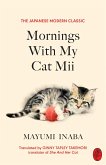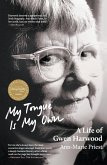Schade – dieser Artikel ist leider ausverkauft. Sobald wir wissen, ob und wann der Artikel wieder verfügbar ist, informieren wir Sie an dieser Stelle.
- Broschiertes Buch
- Merkliste
- Auf die Merkliste
- Bewerten Bewerten
- Teilen
- Produkt teilen
- Produkterinnerung
- Produkterinnerung
A critical biography of a modern Japanese literary giant, whose brilliant career ended in a spectacular ritual suicide.
Andere Kunden interessierten sich auch für
![David Bowie Outlaw David Bowie Outlaw]() Alex SharpeDavid Bowie Outlaw197,99 €
Alex SharpeDavid Bowie Outlaw197,99 €![Paris Paris]() Paris HiltonParis12,99 €
Paris HiltonParis12,99 €![Confesiones de una máscara de Yukio Mishima (Guía de lectura) Confesiones de una máscara de Yukio Mishima (Guía de lectura)]() ResumenexpressConfesiones de una máscara de Yukio Mishima (Guía de lectura)9,99 €
ResumenexpressConfesiones de una máscara de Yukio Mishima (Guía de lectura)9,99 €![Mornings Without Mii Mornings Without Mii]() Mayumi InabaMornings Without Mii10,99 €
Mayumi InabaMornings Without Mii10,99 €![Comforts of the Abyss: The Art of Persona Writing Comforts of the Abyss: The Art of Persona Writing]() Philip SchultzComforts of the Abyss: The Art of Persona Writing23,99 €
Philip SchultzComforts of the Abyss: The Art of Persona Writing23,99 €![Mornings With My Cat Mii Mornings With My Cat Mii]() Mayumi InabaMornings With My Cat Mii11,99 €
Mayumi InabaMornings With My Cat Mii11,99 €![My Tongue Is My Own My Tongue Is My Own]() Ann-Marie PriestMy Tongue Is My Own29,99 €
Ann-Marie PriestMy Tongue Is My Own29,99 €-
-
A critical biography of a modern Japanese literary giant, whose brilliant career ended in a spectacular ritual suicide.
Produktdetails
- Produktdetails
- Verlag: Stone Bridge Press
- Seitenzahl: 866
- Erscheinungstermin: 6. Juli 2020
- Englisch
- Abmessung: 229mm x 152mm x 50mm
- Gewicht: 1379g
- ISBN-13: 9781611720648
- ISBN-10: 1611720648
- Artikelnr.: 58518825
- Herstellerkennzeichnung
- Libri GmbH
- Europaallee 1
- 36244 Bad Hersfeld
- gpsr@libri.de
- Verlag: Stone Bridge Press
- Seitenzahl: 866
- Erscheinungstermin: 6. Juli 2020
- Englisch
- Abmessung: 229mm x 152mm x 50mm
- Gewicht: 1379g
- ISBN-13: 9781611720648
- ISBN-10: 1611720648
- Artikelnr.: 58518825
- Herstellerkennzeichnung
- Libri GmbH
- Europaallee 1
- 36244 Bad Hersfeld
- gpsr@libri.de
Hiroaki Sato is a prolific, award-winning writer of books on Japanese history and literature, and a translator of classical and modern Japanese poetry into English. American poet Gary Snyder has called Sato "perhaps the finest translator of contemporary Japanese poetry into American English." He is the author of the classic works Legends of the Samurai. and The Sword and the Mind and most recently The Forty-Seven Samurai. His reviews and articles have appeared in The Philadelphia Inquirer, The New York Times Book Review, AsiaWeek, Mainichi Daily News, St. Andrews Review, Journal of the Association of Teachers of Japanese, The Journal of American and Canadian Studies, Comparative Literature Studies, The Japan Times, The Harvard Journal of Asiatic Studies, The Journal of Japanese Studies, Modern Haiku, Japan Focus, and others. He recently received the 2017-2018 Japan-U.S. Friendship Commission Translation Prize for Silver Spoon (Stone Bridge Press).
Prologue
Chapter One: The Hometown
Chapter Two: Grandparents and Parents
Chapter Three: The Boy Who Write Poems (1937-1942)
Chapter Four: Azuma Fumihiko
Chapter Five: First Love (1942-1945)
Chapter Six: The Aftermath of the War (1945-1946)
Chapter Seven: A Bureaucrat or a Writer
Chapter Eight: Confessions (1948-1949)
Chapter Nine: Boyfriends, Girlfriends (1950-1951)
Chapter Ten: Going Overseas (1951-1952)
Chapter Eleven: The Girlfriend (1953-1957)
Chapter Twelve: Kinkakuji (1956-1957)
Chapter Thirteen: Overseas Again (1957)
Chapter Fourteen: Marriage (1958-1959)
Chapter Fifteen: Kyoko's House (1959)
Chapter Sixteen: The 2.26 Incident and Yukoku (1960)
Chapter Seventeen: Assassinations (1960-1963)
Chapter Eighteen: Contretemps (1963-1964)
Chapter Nineteen: The Nobel Prize (1964-1965)
Chapter Twenty: The Shimpuren (1966-1967)
Chapter Twenty-One: "The Way of the Warrior is to die" (1967)
Chapter Twenty-Two: Passage to India (1967)
Chapter Twenty-Three: The Anti-Vietnam War Movement (1968)
Chapter Twenty-Four: Sun and Steel (Mid-1968-Early 1969)
Chapter Twenty-Five: The Shield Society and Counterrevolution
Chapter Twenty-Six: The Yakuza
Chapter Twenty-Seven: Yangming Philosophy and Revolution Chapter Chapter
Twenty-Eight: The Constitution
Chapter Twenty-Nine: Toward Ichigaya
Chapter Thirty: The Seppuku
Epilogue
Bibliography
Index
Chapter One: The Hometown
Chapter Two: Grandparents and Parents
Chapter Three: The Boy Who Write Poems (1937-1942)
Chapter Four: Azuma Fumihiko
Chapter Five: First Love (1942-1945)
Chapter Six: The Aftermath of the War (1945-1946)
Chapter Seven: A Bureaucrat or a Writer
Chapter Eight: Confessions (1948-1949)
Chapter Nine: Boyfriends, Girlfriends (1950-1951)
Chapter Ten: Going Overseas (1951-1952)
Chapter Eleven: The Girlfriend (1953-1957)
Chapter Twelve: Kinkakuji (1956-1957)
Chapter Thirteen: Overseas Again (1957)
Chapter Fourteen: Marriage (1958-1959)
Chapter Fifteen: Kyoko's House (1959)
Chapter Sixteen: The 2.26 Incident and Yukoku (1960)
Chapter Seventeen: Assassinations (1960-1963)
Chapter Eighteen: Contretemps (1963-1964)
Chapter Nineteen: The Nobel Prize (1964-1965)
Chapter Twenty: The Shimpuren (1966-1967)
Chapter Twenty-One: "The Way of the Warrior is to die" (1967)
Chapter Twenty-Two: Passage to India (1967)
Chapter Twenty-Three: The Anti-Vietnam War Movement (1968)
Chapter Twenty-Four: Sun and Steel (Mid-1968-Early 1969)
Chapter Twenty-Five: The Shield Society and Counterrevolution
Chapter Twenty-Six: The Yakuza
Chapter Twenty-Seven: Yangming Philosophy and Revolution Chapter Chapter
Twenty-Eight: The Constitution
Chapter Twenty-Nine: Toward Ichigaya
Chapter Thirty: The Seppuku
Epilogue
Bibliography
Index
Prologue
Chapter One: The Hometown
Chapter Two: Grandparents and Parents
Chapter Three: The Boy Who Write Poems (1937-1942)
Chapter Four: Azuma Fumihiko
Chapter Five: First Love (1942-1945)
Chapter Six: The Aftermath of the War (1945-1946)
Chapter Seven: A Bureaucrat or a Writer
Chapter Eight: Confessions (1948-1949)
Chapter Nine: Boyfriends, Girlfriends (1950-1951)
Chapter Ten: Going Overseas (1951-1952)
Chapter Eleven: The Girlfriend (1953-1957)
Chapter Twelve: Kinkakuji (1956-1957)
Chapter Thirteen: Overseas Again (1957)
Chapter Fourteen: Marriage (1958-1959)
Chapter Fifteen: Kyoko's House (1959)
Chapter Sixteen: The 2.26 Incident and Yukoku (1960)
Chapter Seventeen: Assassinations (1960-1963)
Chapter Eighteen: Contretemps (1963-1964)
Chapter Nineteen: The Nobel Prize (1964-1965)
Chapter Twenty: The Shimpuren (1966-1967)
Chapter Twenty-One: "The Way of the Warrior is to die" (1967)
Chapter Twenty-Two: Passage to India (1967)
Chapter Twenty-Three: The Anti-Vietnam War Movement (1968)
Chapter Twenty-Four: Sun and Steel (Mid-1968-Early 1969)
Chapter Twenty-Five: The Shield Society and Counterrevolution
Chapter Twenty-Six: The Yakuza
Chapter Twenty-Seven: Yangming Philosophy and Revolution Chapter Chapter
Twenty-Eight: The Constitution
Chapter Twenty-Nine: Toward Ichigaya
Chapter Thirty: The Seppuku
Epilogue
Bibliography
Index
Chapter One: The Hometown
Chapter Two: Grandparents and Parents
Chapter Three: The Boy Who Write Poems (1937-1942)
Chapter Four: Azuma Fumihiko
Chapter Five: First Love (1942-1945)
Chapter Six: The Aftermath of the War (1945-1946)
Chapter Seven: A Bureaucrat or a Writer
Chapter Eight: Confessions (1948-1949)
Chapter Nine: Boyfriends, Girlfriends (1950-1951)
Chapter Ten: Going Overseas (1951-1952)
Chapter Eleven: The Girlfriend (1953-1957)
Chapter Twelve: Kinkakuji (1956-1957)
Chapter Thirteen: Overseas Again (1957)
Chapter Fourteen: Marriage (1958-1959)
Chapter Fifteen: Kyoko's House (1959)
Chapter Sixteen: The 2.26 Incident and Yukoku (1960)
Chapter Seventeen: Assassinations (1960-1963)
Chapter Eighteen: Contretemps (1963-1964)
Chapter Nineteen: The Nobel Prize (1964-1965)
Chapter Twenty: The Shimpuren (1966-1967)
Chapter Twenty-One: "The Way of the Warrior is to die" (1967)
Chapter Twenty-Two: Passage to India (1967)
Chapter Twenty-Three: The Anti-Vietnam War Movement (1968)
Chapter Twenty-Four: Sun and Steel (Mid-1968-Early 1969)
Chapter Twenty-Five: The Shield Society and Counterrevolution
Chapter Twenty-Six: The Yakuza
Chapter Twenty-Seven: Yangming Philosophy and Revolution Chapter Chapter
Twenty-Eight: The Constitution
Chapter Twenty-Nine: Toward Ichigaya
Chapter Thirty: The Seppuku
Epilogue
Bibliography
Index








